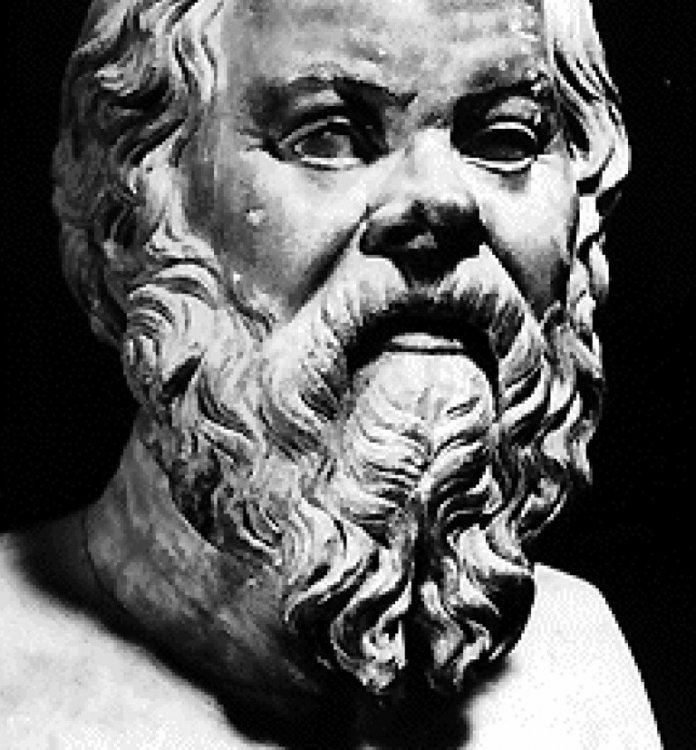
The exact date of Socrates’ birth cannot be found in any encyclopedia of the world. But scientists had calculated it from indirect clues that it was the fourth of June, 470 BC. There are no Socrates’ writings on library bookshelves as he did not appreciate the written word and never used it – he believed that it instills forgetfulness in mind and weakens memory. His philosophical views and the circumstances of his life and death have reached us recounted by his disciples, Plato and Xenophon. One can also read Aristophanes who depicted Socrates in his comedy, Clouds. From this evidence comes the image of a bare-footed philosopher confident that the object of philosophy is not nature but the man and his moral qualities. To explore these issues, he came up with his Socratic method which can simply be explained as the art of dialectical dispute. He argued with his students as he walked the street or sat at home near the hearth – the students came to him with bales of firewood as he did not accept tuition fees.
His aphorisms and advice can be quoted for hours: it is from Socrates that we know that all wisdom begins from being surprised that we eat to live, not live to eat, and that inebriety does not beget flaws but rather uncovers them. Arguing with his students about what is a man and having heard in response that it’s a naked two-legged creature, he immediately pointed them to a deplumed chicken. When asked whether it is worth to marry, Socrates answered that, of course, it is, four if you marry successfully, you will live a happy life. And if not, you’ll become a philosopher. He knew that from his own experience, because his quarrels with his wife Xanthippe also went down in history.
As aptly described by Alexander Herzen, Socrates’ detractors tried to “cure” him from his intellect and consciousness with water hemlock. In 399 BC, he was charged with not honoring gods and corrupting youth. “Teacher, why are you dying innocent?” - cried his disciple seeing that he brings to his lips a bowl of poison ordered by the court. “Would you rather prefer me to die guilty?” – Socrates replied astounded. By the way, his great phrase about him knowing that he knows nothing has a continuation that few are aware of: “but the rest of us don’t know even that.”
























